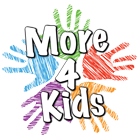by Ann Bowers
 The current teaching of mathematics is often weak in traditional schools. Children are taught math facts and are expected to learn them through rote memory drills. Often children are expected to complete worksheets and textbook exercises, rather than engage in math projects in which math and science concepts are discovered and applied. This results in a lack of understanding of math concepts and leads to poor preparation for the study of math at the university level.
The current teaching of mathematics is often weak in traditional schools. Children are taught math facts and are expected to learn them through rote memory drills. Often children are expected to complete worksheets and textbook exercises, rather than engage in math projects in which math and science concepts are discovered and applied. This results in a lack of understanding of math concepts and leads to poor preparation for the study of math at the university level.
Why is math teaching so poor? Sometimes teachers do not understand math well so they rely on textbooks and drills. Some teachers and parents believe that math is merely the memorization of calculation rules and basic facts. Teachers and parents often had no opportunities to explore math and learn concepts through real-life experiences. Poor grades or negative comments may have made math something to be avoided. Also, children who don’t master the basics fall quickly behind and give up trying to learn math. It’s very important that children are assessed regularly to make sure that they are mastering what is being taught and can use it appropriately.
How do you motivate a homeschooled student to study math and avoid a fear of math
?
As a parent and teacher in a home school, do you like math? When you were in school, did you hate math because it was hard or boring? Did it make sense to you and did you have a “natural” ability for it? Did you have good math teachers? Or, did you think that math was only for boys or nerds? The best teachers love the subject(s) they teach. But, if you feel negative about math, it will be obvious and your children may develop math anxiety or lack motivation to learn it. Small children like numbers and math, but many kids develop math anxiety or end up hating math. A major factor in causing math anxiety and hate is the way the teacher feels about math. So, a very important way to motivate your children to enjoy math is to show them that you are enthusiastic about it! If you really hate math, you can explain to your child how you feel, why you developed this problem, and how you are trying to change.
Take the pressure off regarding tests and grades. Tests are a part of education, but tests and grades shouldn’t be the major goal. The goal should be to learn math in order to use it effectively in real life situations. Tests should be used to evaluate how well a child has learned what has been taught. A child doesn’t even have to know that a “test” is being given. Just tell the child you are going to “observe” how well he or she can …solve these problems, create a pattern, multiply, calculate the circumference of this circle, or whatever. Teach students how to take notes to prepare for an exam. Make a study schedule when preparing for a test. Teach the child how to study and prepare by reviewing materials, notes, the textbook, and taking practice exams.
No part of this article may be copied or reproduced in any form without the express permission of More4Kids Inc © 2007
All Rights Reserved










Add Comment